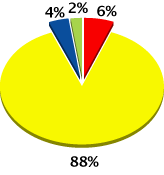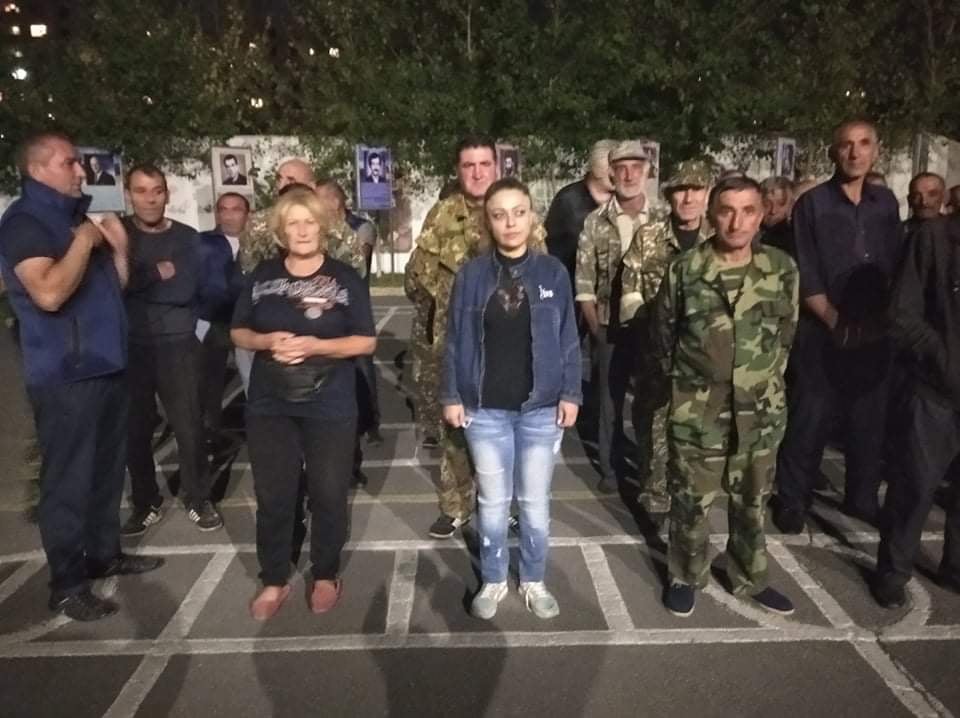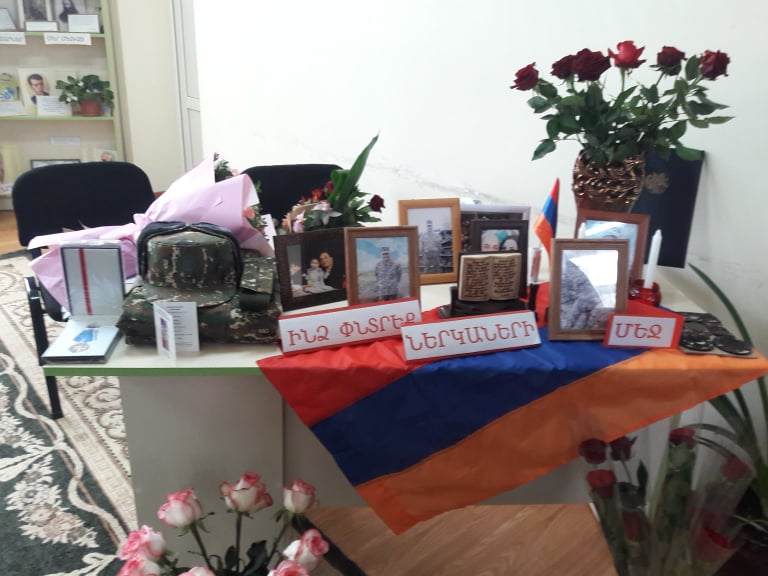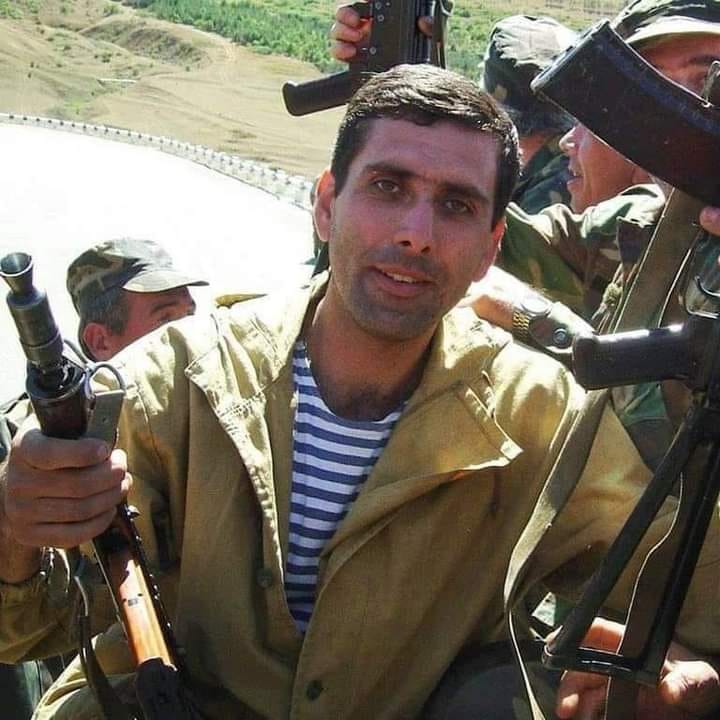ACNIS Takes on the Challenges of Armenian Culture and Values
 Yerevan—The Armenian Center for National and International Studies (ACNIS) convened today a roundtable discussion on “The Challenges of Culture and Value System in Armenia.” As part of the forum, the Center released the results of its specialized opinion survey, entitled “Value and Ideology Benchmarks: Imperatives and Alternatives,” which involved more than 50 experts from Yerevan and across Armenia.
Yerevan—The Armenian Center for National and International Studies (ACNIS) convened today a roundtable discussion on “The Challenges of Culture and Value System in Armenia.” As part of the forum, the Center released the results of its specialized opinion survey, entitled “Value and Ideology Benchmarks: Imperatives and Alternatives,” which involved more than 50 experts from Yerevan and across Armenia.
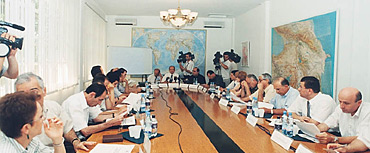 ACNIS director of administration Karapet Kalenchian greeted the invited guests and public participants with opening remarks. “These deliberations on culture, together with the expert survey preceding them, aim to present one focus group’s professional perceptions of ideology guideposts which are characteristic of a transitional period, as well as the true role and place of our system of values and patterns of cultural development,” he said.
ACNIS director of administration Karapet Kalenchian greeted the invited guests and public participants with opening remarks. “These deliberations on culture, together with the expert survey preceding them, aim to present one focus group’s professional perceptions of ideology guideposts which are characteristic of a transitional period, as well as the true role and place of our system of values and patterns of cultural development,” he said.
| ACNIS legal and political affairs analyst Stepan Safarian focused in detail on the findings of the expert opinion polls. Accordingly, the majority of the surveyed experts assert that Armenian society today does not have clearly-defined value-based guidelines. 4% of experts find it difficult to answer this question, and only 6% give a positive answer.
According to 20% of respondents, the
|
- It has been formed during the years
of independence - It comes to us from the depth of
centuries - It comes from the depth of
centuries together with our era’s “isms” -
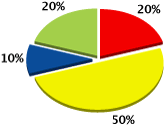
The experts are of the opinion that
Armenian society often favors personal values and their manifestations, with
egocentrism (90%) prevailing over altruism. Regarding group interests, 96% are
of the opinion that society favors clan interests over collectivism. On the
level of national values, 44% and 48%, respectively, choose nationalism and
patriotism, and 80% and 72% cite the human values of cosmopolitanism and
humanitarianism, respectively.48% of respondent specialists think
that the benchmarks of societal values should be defined by liberal democracy,
18% social democracy, and 18% national democracy.Liberal democracy 48%
Social democracy 18%
Communist
ideology0%
National
ideology18%
Other: 16% - Synthesis of liberal democracy and
national ideology - Synthesis of social democracy and
national ideology - Synthesis of all that will provide
diversity, consensus, and tolerance in public life - National-spiritual system of values
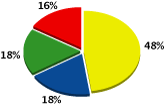
6% of participants point to the
supremacy of group interests as the primary obstacle to deepening of the
democratic system of values adopted by the Armenian public, while 20% blame the
society’s unsatisfactory level of political consciousness, 4% its low
educational level, 2% the lack of propagation of relevant values, and 2% the
counter-propagation of those values. 54%, 6%, and 2% find inappropriate the
attitude of the authorities, opposition, and political forces supporting the
authorities, respectively, toward those values.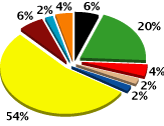
Different strata of
society are guided by group interests6%
The dissonance and disunity of
society0%
The
unsatisfactory level of political consciousness20%
The low
educational level of society4%
The lack of propagation
of those values2%
Counter-propagation of those values 2%
The
inappropriate attitude of the authorities toward those values54%
The
inappropriate attitude of the opposition toward those values6%
The
inappropriate attitude of the political forces supporting the authorities toward
those values2%
Those values
are foreign to society0%
Other: 4% - Absence of political will
- Those values are false and useless
Taking into account today’s
imperatives, 26% underscore the importance of a sovereign state, 14% human
rights and freedoms, 14% spirituality, 14% constitutional order, 10% democracy,
10% patriotism, 6% separation of powers, and 4% equal rights.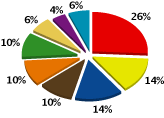
Sovereign state 26%
Human rights and
freedoms14%
Spirituality
14%
Constitutional order· 10%
Democracy
10%
Patriotism 10%
Separation of
powers6%
Equal
rights4%
Other: 6% - Freedom and fairness of elections
- National independence
According to the experts, the
average Armenian’s conduct of late has changed markedly toward types of negative
demeanor. Only 6% assess lawfulness to be a positive feature of the average
Armenian’s conduct, 94% as negative. Lawlessness in the average Armenian’s
behavior is marked as negative by 100% of experts, fairness as positive by 38%
and negative by 62%, unfairness as positive by 26% and negative by 74%, honesty
and dishonesty are considered positive by 30% and 84% and negative by 70% and
16%, kindness and evil as positive by 46% and 70% and negative by 54% and 30%,
initiative and passiveness as positive by 46% and 62% and negative by 54% and
38%, devotion and treachery as positive by 36% and 66% and negative by 64% and
34%, civility and rudeness as positive by 20% and 76% and negative by 80% and
24%. Diligence is marked as positive by 76% and negative by 24%.It is noteworthy that the experts
surveyed are convinced that young people are inclined toward democracy, the
middle generation toward authoritarianism, and the senior generation toward
totalitarianism. In the event of maintaining the current value benchmarks and
system, Armenia will proceed to authoritarianism according to 66% of
respondents, to totalitarianism accordingly to 12%, to democracy according to
16%.Democracy 16%
Authoritarianism 66%
Totalitarianism 12%
Other: 6% - Difficult to answer
- It proceeds nowhere, but rather
merely continues its mission on Earth
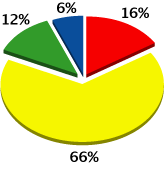
38% opine that Armenia will
establish a system of values characteristic of a democratic society in 25 years,
6% in 50 years, and 4% in 100 years, whereas 8% do not believe that Armenia will
ever have such a system of values. 40% have a more optimistic attitude toward
this issue. They think it will take five to ten years.5 years 4%
10 years 40%
25
years38%
50
years6%
100 years
4%
Never 8%
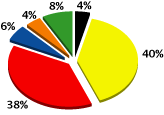
The specialists maintain that from
the perspective of civilizational values Armenian society is closest to Eastern
civilization (10%), Russian civilization (10%), and European civilization (12%),
while 44% hold that Armenian civilization is a synthesis of all.Western or European
civilization12%
Eastern-type
civilization10%
Russian
civilization10%
We are a completely
different civilization10%
A synthesis of
all44%
Other: 14% - Middle Eastern civilization
- We are not a civilization
- Eurasian civilization
- Russian and Asian-Oriental
civilization - We are inclined to the European,
but practice the Eastern - We often have found ourselves under
the ideological influence of different civilizations, and now are passing from
one to another, but we are like all other nations with our national-spiritual
values
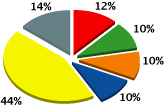
What is the role of the spiritual
world in our life today? 74% of experts conclude that this role is a small one,
24% think it plays no role, and only 2% say it leads a great role.Great 2%
Small 74%
None 24%
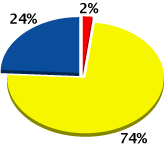
14% of respondents point to the
super-materialized character of contemporary life as the main reason for the
relatively small role of the spiritual world, 20% to the low quality of
spiritual sustenance, 6% to the lack of propagation of spiritual values, 6% to
the passiveness of the intelligentsia, and 20% and 6% to the absence of
exemplary behavior by the authorities and the political elite,
respectively.Super-materialized character of
contemporary life14%
Variety of material
challenges10%
Low quality of
spiritual sustenance20%
Lack of propagation of
spiritual values6%
Absence of exemplary
behavior by the authorities20%
Absence of exemplary
behavior by the political elite6%
Passiveness of the
intelligentsia6%
Decline in society’s
senses6%
Other: 12% - Unspiritual essence of the
spiritual class, together with all derivative consequences - Absence of the human being as a
supreme value . - Being far from the spiritual world
for 1000 years - Cultural foundations are cut off
from the present, and today’s culture is poor - Materialization and politicization
of the Armenian Apostolic Church, and the parallel budding of sects - Man has left God, and he probably
will have to go a long way to reach Him again

66% of the respondents are male, and
34% female; 26% are 21-30 years of age, 40% 31-40, 24% 41-50, 10% 51 or above.
All the experts surveyed have received higher education, 14% are full professors
(PhD), 82% hold a Master’s degree, and 4% have earned a Bachelor’s degree. The
second item on the day’s agenda was a presentation by Yerevan State University
professor Vardan Khachatrian, who addressed “The Old and the New: Tradition and
Progress.” “The unique aspect of Armenian identity is the cultural stratum that
has come to us from ancient times and promoted the Armenian people’s survival,”
he said, emphasizing the role of the church, which has recently diminished. “The
guiding precept of the spiritual elite today is not the struggle for spiritual
progress but the ability to adapt to the present regime,” Khachatrian concluded,
noting that the latter is unable to foster society’s spiritual development since
it pursues a policy of devastating symbols of national pride instead of paying
tribute to them.The formal presentations were
followed by contributions by Anahit Bayandur of the Helsinki Citizens’ Assembly;
former minister of state Hrach Hakobian; law professor Hrair Tovmasian; Mushegh
Yekmalian of the OSCE Yerevan Office; Derenik Demirchian High School principal
Anahit Bakhshian; Alexander Butaev of the National Democratic Union; MP Shavarsh
Kocharian of the National Democratic Party; Yerevan State University professor
Aram Harutiunian; Vahagn Khachatrian of the “Armat” center; Ruzanna Khachaturian
of the People’s Party of Armenia; Artsrun Pepanian, political analyst for AR
television; Gayane Markosian of the Harmonious World NGO; National Press Club
chairperson Narine Mkrtchian; and several others.ACNIS economic and diaspora affairs
analyst Hovsep Khurshudian made summary remarks. “We may deduce from many of the
answers that the reestablishment of values and traditions highly depends on the
political system, and particularly morality of the ruling elite. Therefore only
fundamental, system changes will lead to positive results,” he concluded.
Founded in 1994
by Armenia’s first Minister of Foreign Affairs
Raffi K. Hovannisian, and supported by the Lincy Foundation and
a global network of contributors, ACNIS serves as a link
between innovative scholarship and the public policy challenges facing Armenia
and the Armenian people in the post-Soviet world. It also aspires
to be a catalyst for creative, strategic thinking and
a wider understanding of the new global environment. In 2003, the
Center focuses primarily on public outreach, civic education, and applied
research on critical domestic and foreign policy issues for the state and
the nation.For further information on the
Center and its activities, call (3741) 52-87-80 or
27-48-18; fax (3741) 52-48-46; e-mail root@acnis.am or info@acnis.am - Synthesis of liberal democracy and
